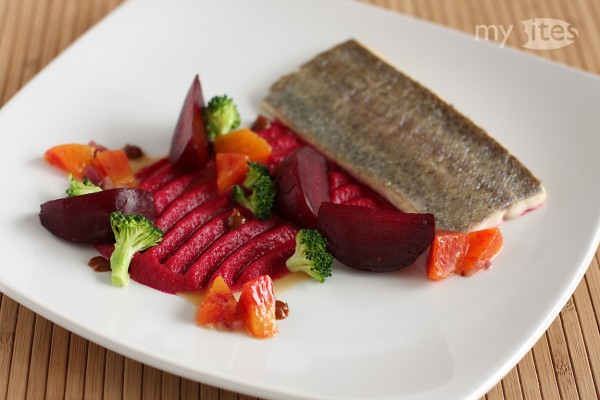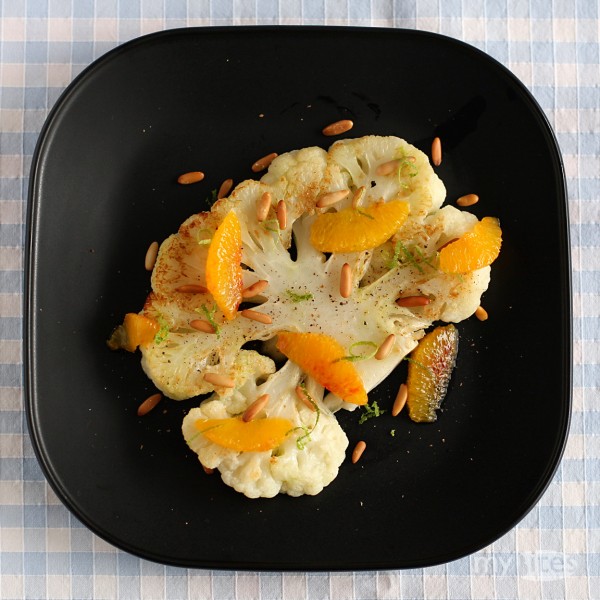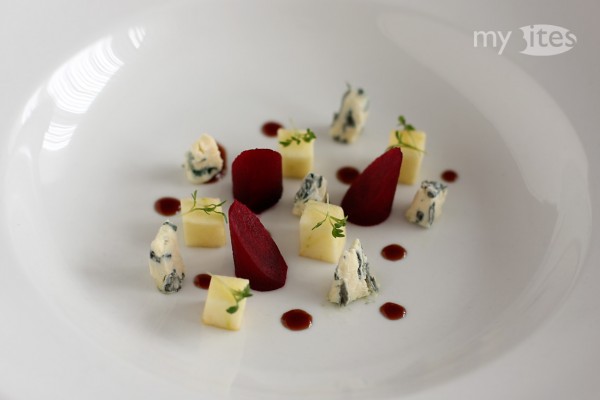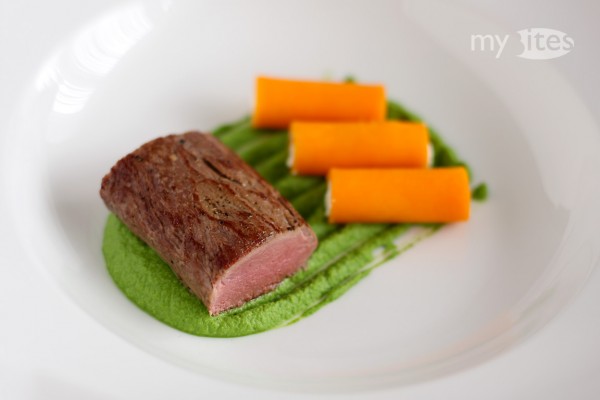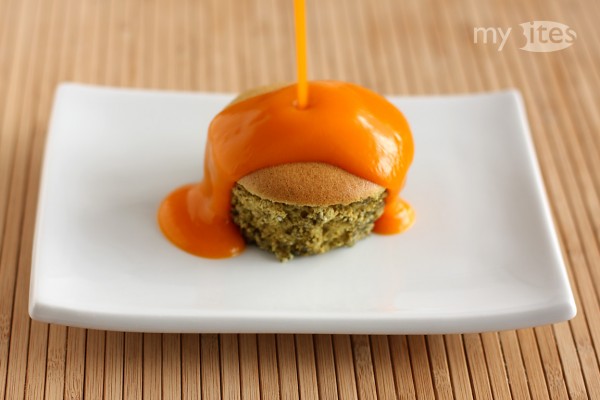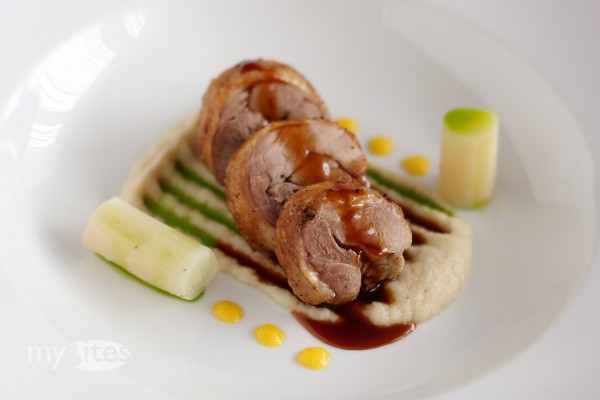Two friends of mine, Gabi and Gaba recently launched a new Hungarian food blog with recipes and information about fish and seafood. Because I love to work with local fish like trout or char, they asked me to write a guest post with a recipe featuring trout and seasonal ingredients. Although winter is dark and cold, the ingredients of this season aren’t nearly as grey and dreary as they are often told. This dish is a good example for the bright colors of winter. Actually, the colors of the vegetables are complemented by the single grey element on the plate only, the trout.
Roasted Cauliflower with Orange, Mint and Pine Nuts
It’s very hard to find really bloody oranges. At the market here in Erlangen two different kinds of blood oranges are being sold: one half-blood orange called “Tarocco” and a full-blood orange named “Moro”. In the last years and during this winter as well, they were both pretty pale inside, containing only a few red pigments – if any at all. I usually try to determine the bloodiness of an orange by the color of the skin, but unfortunately a red pigmented skin doesn’t guarantee a deep red interior. Since I don’t know any better method, finding really red blood oranges remains a kind of lottery. The statistics for this current winter season are pretty disillusioning: only 1 of 20 blood oranges was truly deep red inside. I planned to use red blood oranges for this vegan dish too, but unfortunately the oranges I bought had yet again only very few red spots. Irrespectively of their color, they fulfilled their means of use by adding sourness and freshness to the dish.
Red Cabbage Cream Soup with Apple, Beets and Blue Cheese
I’ve been longing for a fruit and vegetable juicer, but never had any free space in my flat to store it. Now that I gave up my tv – which I haven’t turned on since last Easter – I bought a quite powerful juicer in its place. For the inauguration I juiced some kale leaves which I used in a previous recipe for a puree. The extracted liquid was pretty clear and the remaining shredded leaves were dry, so I was happy. Cleaning the parts is a little bit labor intensive, but it is still worth for the result. On my second attempt I extracted the juices of a red cabbage, which I used for a dark purple colored creamy soup.
Venison Sirloin with Macadamia-Kale Puree
Kale is definitely one of my favorite ingredients this winter. I usually buy one large or two smaller plants on Saturdays at the market and cook them quite often Asian style once or twice a weak. Because a kale plant is huge, it’s impossible to keep it in the refrigerator. Fortunately, in winter I can store it in a bag on my balcony, because cold and frosty nights are no problem for kale. Actually, temperatures below 0°C makes kale taste less bitter and more sweet. That is also a reason why it is such a great winter vegetable.
Pumpkin Seed Soufflé with Butternut Squash Sauce
There are plenty of different butters and purees available made purely from nuts, such as peanut butter, almond paste or hazelnut nougat. They all work great in desserts, so I thought a butter made from pumpkin seeds might work in sweets well, too. Although its taste resembles the hazelnut nougat flavor, at the same time it also has a nice pumpkin seed aroma. The consistency of the pure butter is quite thick and first it looks brown, but if you loosen it up with some water or other liquid its color turns into dirty green and the butter gets creamy again. It can be used in batters or creams to both flavor and color them. This also gave me the idea to try the pumpkin seed butter in a soufflé.
Duck Leg with Salsify, Mandarin, Basil and Quince
Last year in spring I tried a new technique for cooking chicken legs. I carefully removed the bones, rolled the meat up and fixed it with kitchen twine. Then I roasted the chicken roll on all sides and baked the leg in the oven. The result turned out really great, so now in winter I gave the same technique a try using duck legs.
